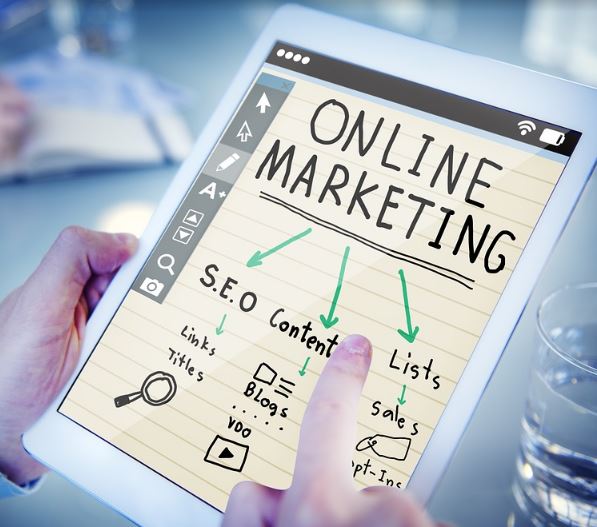Artificial Intelligence (AI) may initially seem contradictory, but its integration into our world has undeniably made it smarter by automating tasks, calculating solutions, and enhancing efficiency. Once confined to the realms of science fiction, AI now subtly influences various aspects of our daily lives.

To illustrate, let’s consider the daily commute. If you drive to work, traffic delays are inevitable. However, AI is transforming this experience by providing real-time data to mapping software, enabling adjustments for congestion, road construction, and accidents. For those who rely on mass transit, AI ensures optimal service. Additionally, ride-sharing apps like Uber and Lyft utilize AI to predict pick-up times, ride durations, and facilitate efficient ride-sharing.
The prevalence of AI extends beyond commuting, permeating our reliance on technologies such as SIRI, Google, email, Facebook, Alexa, Amazon, Instagram, Netflix, Pandora, and numerous others. Undoubtedly, AI has become omnipresent in our daily lives.
Harnessing the Right AI Tools for Enhanced Digital Marketing
AI has also gained significant traction in the realm of digital marketing. It operates seamlessly in the background, empowering marketers to refine pay-per-click advertising, personalize websites, create compelling content, and predict consumer behavior. According to Forbes, 84 percent of marketing organizations implemented or expanded their use of AI and machine learning in 2018, recognizing the immense benefits of these technologies.
Businesses leverage AI in digital marketing through two primary avenues. Firstly, marketers utilize AI on the backend to forecast product demand, develop comprehensive customer profiles, and engage in programmatic ad buying, among other tasks. Secondly, AI enhances the customer-facing aspect of marketing, improving the overall customer experience, bolstering brand loyalty, and ultimately driving sales. In fact, organizations employing AI and machine learning report an increase of over 10 percent in customer satisfaction.
4 Pioneering Applications of AI in Digital Marketing for Enhanced Customer Satisfaction
When it comes to optimizing customer experiences using AI, four remarkable developments take center stage: chatbots, predictive and targeted content, content creation, and image recognition technology. Each of these innovations contributes to superior customer service, tailored content delivery, and increased relevancy. Here’s a closer look at these cutting-edge technologies and their potential to boost your bottom line.
Chatbots
Chatbots, powered by AI, engage in conversations to address queries and provide information. You may have encountered a chatbot while browsing a website, seeking answers to specific questions. These intelligent software applications, often appearing as chat windows, facilitate auditory or textual interactions. Chatbots have emerged as a powerful marketing tool, particularly on social media platforms. They excel in customer service, aiding both customers and brands, collecting valuable customer data, and disseminating targeted messages. Chatbots can guide customers through the sales funnel by asking targeted questions that help identify the products or services they require. As an example, the National Australia Bank (NAB) introduced a chatbot that serves as a digital virtual banker for their business customers, saving time on administrative tasks. Available 24/7, this chatbot efficiently responds to over 13,000 different customer inquiries based on real-life interactions.
Predictive and Targeted Content
AI plays a pivotal role in collecting and analyzing data about prospects and customers, enabling the prediction of future behaviors and facilitating the creation of targeted messaging. This content can be delivered via chatbots, dynamic web pages, or email campaigns. Leveraging customer behavioral patterns, AI ensures that the right message is delivered at the right time through dynamic content. By tracking customer interactions such as website visits, blog post reads, and email engagements, AI intelligently selects content that resonates with individual customers, automatically populating an email with personalized content. AI also employs “churn prediction” to anticipate when customers might disengage from a brand, allowing marketers to provide tailored content that re-engages them effectively.
Content Creation
The demand for high-quality content has always been a challenge for marketers. AI comes to the rescue by generating content efficiently. AI can produce articles consisting of hundreds of words, indistinguishable from those written by humans. Additionally, AI-generated language developed by platforms like Persado enables the creation of email subject lines and social media ads. The content generated by AI remains customer-focused, purposeful, and valuable, catering to customers seeking information without requiring excessive time from employees or freelancers.
Image Recognition Technology
Image recognition software represents another AI tool that businesses leverage to enhance customer experiences. This technology has been in use for some time, as evidenced by platforms like Facebook automatically tagging friends in uploaded photos. Image recognition software also personalizes customer experiences in various ways. For instance, major retailer Macy’s introduced Macy’s Image Search, an app that allows customers to upload photos of items they desire, helping them find similar products within Macy’s inventory.
Staying Ahead of Trends with Intelligent Marketing Strategies
Artificial Intelligence has become intricately intertwined with our technologies and daily lives, benefiting consumers in numerous ways. However, marketers must adapt to capitalize on the advantages of AI, enhancing customer experiences, fortifying brand loyalty, and ultimately driving revenue growth. Moreover, AI is just one of the many new tools, trends, and technologies that marketers must keep pace with. Simplilearn offers a comprehensive Digital Marketing certification course designed to empower marketers in eight crucial areas, including search engine optimization (SEO), email marketing, social media marketing, and more. This training equips professionals and teams with the knowledge and confidence needed to thrive in the digital age.



